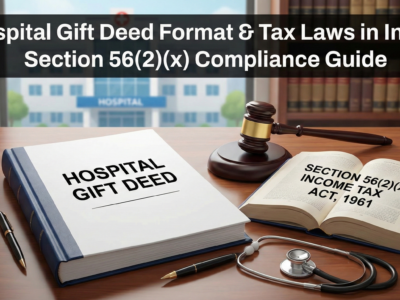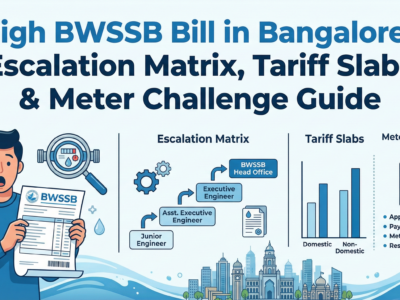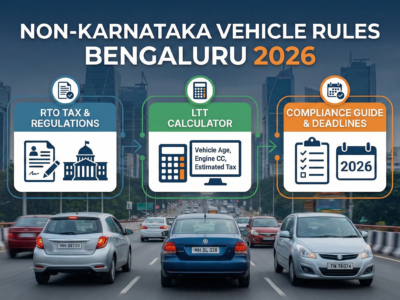Society‐maintenance charges are one of the biggest pain-points for Indian flat-owners, yet even eight years after RERA came into force, key questions—Who pays upkeep on unsold flats? Can a builder levy 18 % GST before the RWA is formed? How much corpus is too much?—remain unanswered or inconsistently enforced across States. This article distils the ten most stubborn grey areas where builders and resident welfare associations (RWAs) still clash, explains why existing case-law and circulars haven’t closed the gaps, and outlines the practical levers buyers can pull in 2025 to protect their wallet and legal rights. Whether you’re about to sign a sale agreement or already battling unfair clauses, this research-driven guide delivers the latest statutory references, emerging court trends and actionable next steps—all in one place.
The Labyrinth of Levies
An Interactive Guide to Society Fee Disputes in Indian Real Estate
The Anatomy of a Persistent Conflict
The journey of an Indian homebuyer doesn't end with getting the keys; it transitions into a complex phase of collective ownership. At the heart of this new reality lies "society fees"—a catch-all for charges that have become a central battleground between homebuyers, developers, and Resident Welfare Associations (RWAs).
These disputes aren't isolated incidents. They are symptoms of deeper, systemic fissures in India's real estate regulatory architecture, stemming from a fragmented governance framework. This report dissects ten of the most contentious scenarios, diagnosing their root causes, analyzing the fragmented legal guidance, and proposing a strategic roadmap for resolution and reform.
Infographic: The Patchwork of Power
The legal landscape is a complex interplay of central laws, state acts, and private contracts, creating gaps and overlaps.
RERA Act, 2016
Central Law
State Acts
(e.g., Apartment Ownership)
Builder-Buyer Agreement
Contract Law
Ten Core Controversies
Navigate through the most common disputes by filtering the categories below. Each scenario represents a live pain-point for homebuyers across India.
1. The GST Conundrum on Pre-RWA Maintenance
Is the 18% GST on maintenance a valid tax or a pure reimbursement? The conflict arises because the RWA exemption (for turnover > ₹20L & monthly fee > ₹7,500) is widely considered inapplicable to for-profit developers. This leads to a direct 18% levy, often on the full amount.
The situation is muddled by conflicting court rulings. The Madras High Court in *TVH Lumbini Square* ruled that GST should apply only on the surplus over ₹7,500. More fundamentally, the Supreme Court's ruling in *State of West Bengal v. Calcutta Club Limited* affirmed the Principle of Mutuality, which holds that a club cannot do business with its own members. This principle could potentially exempt RWA contributions from GST altogether, a point upheld by the Kerala High Court.
GST Impact Calculator
2. The Unsold Inventory Burden
Who pays for the upkeep of unsold flats? The law is clear: the owner is responsible. Until a flat is sold, the developer is the owner. RERA Section 11(4)(d) and Supreme Court rulings affirm that developers must pay maintenance for their inventory.
Developers often insert clauses in agreements to evade this. However, such clauses can be challenged as an Unfair Trade Practice under the Consumer Protection Act, as established in the landmark case *Pioneer Urban Land & Infrastructure Ltd. Vs. Govindan Raghavan*. The primary hurdle isn't the law, but the "enforcement deficit"—the practical difficulty RWAs face in executing orders against well-funded developers.
Infographic: The Enforcement Deficit
RERA/Court orders developer to pay dues.
Developer fails to comply with the order.
RWA must file a separate, costly execution petition.
Process gets stuck in legal hurdles, draining RWA resources.
3. The Advance Maintenance Demand
Developers often demand 2-5 years of maintenance fees upfront, locking up buyer capital. The central RERA Act is silent on this, creating a vacuum filled by one-sided contracts. While states like Maharashtra have pushed back, arguing it undermines RWA autonomy based on RERA's timeline for RWA formation (Sec 11(4)(e)) and conveyance (Sec 17), no binding national cap exists.
This isn't just about cash flow; it's a strategic move by developers to lock RWAs into long-term contracts with preferred vendors, effectively neutering the RWA's governance powers from the start.
Advance Maintenance Calculator
4. The Corpus & Sinking Fund Enigma
It's crucial to distinguish between the one-time Corpus Fund (a capital buffer whose interest is used for expenses) and the recurring Sinking Fund (for future major repairs). Developers often collect an arbitrary Corpus Fund without transparent calculations. The developer collects this money not as income, but as a trustee for the future RWA. This creates a fiduciary duty to hold the funds in a separate account, ensure interest accrues to the fund, and provide a full, audited statement upon handover.
Failure to do so is not just a contractual issue but a Breach of Fiduciary Duty, a much stronger basis for legal action.
5. Society Formation Charges: Cost or Profit?
Developers charge lakhs for a process (registering the RWA) that costs a fraction of that amount. RERA Section 11(4)(e) makes this a statutory duty of the developer, not a business opportunity. Charging a huge premium over actual costs can be challenged under the legal doctrine of Unjust Enrichment, arguing the developer is inequitably profiting from performing a legal obligation.
6. The Clubhouse Conundrum
Is a one-time "lifetime membership" fee for a clubhouse on common property legal? This is highly debatable. The cost should arguably be part of the flat's sale price. The critical event is the Deed of Conveyance. Once common areas are transferred to the RWA, the RWA becomes the owner. The idea that members must pay a fee to a third party (the developer) to access their own property becomes legally absurd.
7. Pre-Occupancy Maintenance Charges
The law is crystal clear: maintenance liability begins only after the developer obtains the Occupancy Certificate (OC). The NCDRC, in the pivotal case of *Madhusudan Reddy & Ors. v. VDB Whitefield Development Pvt. Ltd.*, has repeatedly ruled that demanding charges before the OC is a "deficiency of service."
Developers exploit buyers' financial pressures by weaponizing "fit-out possession," making payment of illegal pre-OC charges a precondition for early access for interior work. This is a classic abuse of a dominant position.
The Homebuyer's Dilemma
Option A: Refuse to Pay
Result: No fit-out access, delayed move-in, continued rent + EMI burden.
Option B: Pay Illegal Fee
Result: Gain early access, start interiors, potentially save on rent.
Developers exploit this financial pressure to enforce an illegal charge.
8. The Ultimate Sanction: Utility Disconnection
Can an RWA cut water or power for non-payment of dues? This drastic measure is legal only if the power is explicitly granted to the association by the respective State's Apartment Ownership or Co-operative Societies Act (e.g., in Maharashtra and Odisha). Without specific statutory delegation, such an act is illegal and violates the resident's Right to Life under Article 21 of the Constitution.
9. The Cross-Subsidy Question
Should residents without cars pay for car lifts or valet services? This is less a statutory issue and more a failure of internal governance. Some state laws (like the UP Apartment Act) recognize the concept of "limited common areas," which are for the exclusive use of certain residents. RWAs have the power to amend their bye-laws to create a more equitable, usage-based cost allocation for such facilities instead of a simple per-flat model.
10. The Final Handover: Delayed Fund Transfers
Developers often delay transferring the corpus fund to the RWA, earning interest on money that legally belongs to the homeowners. While RERA Section 18 penalizes delayed possession of flats, it has a glaring omission: no explicit penalty for delayed transfer of funds. RWAs must argue for interest based on principles of Breach of Fiduciary Duty and Unjust Enrichment.
A Strategic Roadmap for Resolution
Lasting solutions require concerted action from all stakeholders. Here's a look at the practical next steps for homebuyers, the industry, and policymakers.
For Homebuyers & RWAs: A Toolkit for Action
- Audit the Agreement: Before signing, meticulously review all clauses related to fees and liabilities with a lawyer.
- Insist on Escrow: Demand dual-signatory escrow accounts for corpus funds to prevent misuse.
- File Focused RERA Complaints: Use RERA as a direct and cost-effective forum for grievances, citing specific sections.
- Seek Declaratory Suits: To invalidate unfair contract clauses, file a declaratory suit in civil court under the Specific Relief Act.
- Lobby State RERA: Advocate for binding circulars to clarify grey areas and set caps on charges.
Legal Recourse Matrix
This table provides a strategic overview of the legal avenues available for each major grievance.
| Grievance | Primary Forum | Key Principle to Invoke |
|---|---|---|
| GST on Maintenance | High Court / Supreme Court | Challenge CBIC circular; Principle of Mutuality (*Calcutta Club*) |
| Unpaid Unsold Inventory | RERA / Consumer Court | RERA Sec 11(4)(d); Unfair Trade Practice (*Pioneer Urban*) |
| Excessive Advance Maintenance | RERA / Consumer Court | Undermines RWA autonomy; Unfair Trade Practice |
| Opaque Corpus Fund | Civil Court / RERA | Breach of Fiduciary Duty; Unjust Enrichment |
| Maintenance Before OC | RERA / Consumer Court | Deficiency of Service (*Madhusudan Reddy*) |
| Delayed Fund Transfer | RERA / Civil Court | Breach of Fiduciary Duty; RERA Sec 18 Analogy |
A Call for Industry & Policy Reform
While homebuyers can take action, lasting change requires a fundamental shift from developers and policymakers to create a fair and transparent ecosystem.
For the Real Estate Industry
- Standardize Contracts: Industry bodies like CREDAI and NAREDCO should mandate a fair model agreement that eliminates one-sided clauses.
- Promote Transparency: Voluntarily adopt best practices like separate audited accounts for corpus funds and provide detailed maintenance manuals upon handover.
- Shift to Partnership: View the RWA as a long-term partner in preserving the project's value, not as an adversary. A smooth, transparent handover is a commercial imperative.
For Policymakers: A "RERA 2.0" Blueprint
- Define and Regulate Funds: Amend RERA to explicitly define "Corpus Fund" and "Sinking Fund" and provide a standardized formula for their calculation.
- Cap Advance Maintenance: Introduce a national cap of one year on advance maintenance collection by promoters.
- Penalize Delayed Fund Transfer: Add a new section analogous to Section 18, imposing penal interest for delays in transferring funds to the RWA.
- Codify OC Rule: Amend RERA to explicitly state that maintenance liability begins only after the OC is issued, making the NCDRC's ruling a statutory mandate.
- Harmonize Laws: Mandate that State Apartment Ownership Acts are harmonized with RERA to eliminate conflicting provisions.
- Seek Supreme Court Clarity: Actively seek a definitive Supreme Court ruling on the GST conundrum and the validity of unfair contractual clauses to ensure national uniformity.









